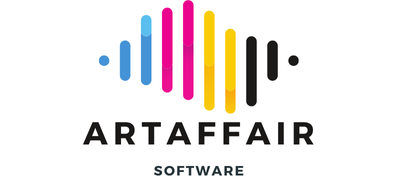The modern supply chain is a complex and intricate network involving multiple stakeholders, from suppliers and manufacturers to distributors and retailers. In such an interconnected web of operations, data transparency becomes crucial for ensuring efficient processes, building trust, and maintaining a competitive edge. With the advent of blockchain technology, there’s now a powerful tool at our disposal to enhance transparency and foster a more secure and seamless supply chain. This article dives into how blockchain can revolutionize supply chain management, outlining its benefits, challenges, and practical applications.
Understanding Blockchain Technology in Supply Chains
Blockchain, a term that has become synonymous with cryptocurrency, offers far more than just digital currency transactions. At its core, blockchain is a decentralized and distributed ledger that records transactions across multiple computers. This technology ensures that data is immutable, secure, and transparent among all participants in the network.
In the same genre : What are the best practices for implementing federated learning in healthcare applications?
In the realm of supply chain management, blockchain can be leveraged to create a transparent and secure record of every transaction, movement, and interaction. Each transaction is time-stamped and linked to the previous one, forming a chain of blocks that can be traced back to the origin. Such traceability and transparency are pivotal for addressing common supply chain challenges and enhancing overall efficiency.
Enhancing Transparency and Trust
Transparency is the cornerstone of an efficient supply chain. Traditional supply chains often suffer from a lack of visibility, leading to inefficiencies, delays, and increased costs. Blockchain can bridge this gap by providing a secure and immutable ledger of all transactions and processes.
In the same genre : How to set up a secure and reliable data synchronization system for hybrid cloud environments?
By leveraging blockchain, all stakeholders in the supply chain can access a single, tamper-proof record of information. This transparency builds trust among participants, as everyone sees the same data and can verify the accuracy of transactions. For instance, retailers can track the journey of a product from its origin to the store shelf, ensuring its authenticity and quality.
Moreover, blockchain can help in combating counterfeit goods, which are a major concern in industries like pharmaceuticals and luxury goods. With blockchain, each product can be tagged with a unique identifier, and its journey can be recorded on the blockchain, making it nearly impossible for counterfeit items to enter the supply chain.
Improving Traceability and Reducing Fraud
Traceability is another critical aspect of supply chain management that blockchain excels at. Traditional systems often struggle with tracking products through multiple stages and different entities. Blockchain provides a unified and continuous record of a product’s lifecycle, from raw materials to the final consumer.
This continuous record is especially beneficial in industries where traceability is paramount, such as food and beverages. In the event of a contamination or recall, blockchain can quickly identify the affected batches, trace them back to their source, and ensure swift and targeted action. This not only protects consumers but also mitigates the financial and reputational damage to companies.
Furthermore, blockchain can significantly reduce fraud within the supply chain. Fraudulent activities, such as falsified documents, misrepresentation of goods, and unauthorized alterations, can be detected and prevented using blockchain’s secure and immutable ledger. By having an indisputable record of transactions, companies can minimize risks and ensure compliance with regulations.
Streamlining Processes with Smart Contracts
Blockchain technology goes beyond just record-keeping; it also introduces the concept of smart contracts. Smart contracts are self-executing contracts with the terms of the agreement directly written into code. They automatically execute and enforce the terms when predefined conditions are met, without the need for intermediaries.
In supply chain management, smart contracts can automate various processes, reducing manual intervention and minimizing the risk of errors. For example, a smart contract can automatically trigger payment to a supplier once the goods are delivered and verified. This not only speeds up transactions but also ensures that payments are made promptly and accurately.
Smart contracts can also enhance supply chain management by automating compliance checks. For instance, they can verify that products meet certain standards and regulations before they proceed to the next stage in the supply chain. This reduces the burden of manual inspections and ensures that only compliant products move forward.
Overcoming Challenges and Implementing Blockchain Solutions
While the benefits of blockchain in supply chain management are clear, implementing this technology is not without its challenges. One of the primary hurdles is the integration of blockchain with existing systems. Many companies have legacy systems in place, and transitioning to a blockchain-based system requires careful planning and coordination.
Additionally, there is the challenge of data privacy and security. While blockchain provides a transparent and immutable ledger, not all data should be publicly accessible. Companies need to strike a balance between transparency and privacy, ensuring that sensitive information is protected while still maintaining the benefits of a shared ledger.
Another challenge is the need for industry-wide collaboration. For blockchain to be truly effective, all participants in the supply chain must adopt and use the technology. This requires collaboration and agreement among various stakeholders, which can be a complex and time-consuming process.
Despite these challenges, many companies are already successfully integrating blockchain into their supply chains. One notable example is the use of blockchain by major retailers like Walmart to track the provenance of food products. By scanning a product’s QR code, consumers can access detailed information about its journey, from farm to shelf, ensuring transparency and trust.
In conclusion, leveraging blockchain technology offers a transformative opportunity to enhance data transparency in supply chain management. By providing a secure, immutable, and transparent record of transactions, blockchain addresses many of the common challenges faced by traditional supply chains. From improving traceability and reducing fraud to automating processes with smart contracts, the potential benefits are vast.
As we move forward, the adoption of blockchain in the supply chain will continue to grow, driven by the need for greater transparency, trust, and efficiency. While there are challenges to overcome, the advantages far outweigh the hurdles. By embracing blockchain, companies can not only streamline their operations but also build a more resilient and trustworthy supply chain network.
For businesses looking to stay competitive in today’s fast-paced and interconnected world, adopting blockchain technology is no longer just an option—it’s a necessity. The future of supply chain management lies in leveraging blockchain to create a transparent, secure, and efficient network that can adapt and thrive in an ever-evolving landscape.
Today’s date: 13/06/2024

















